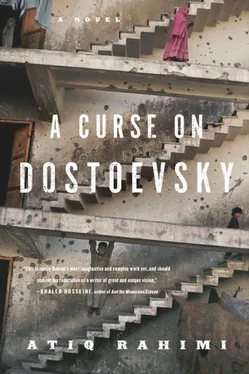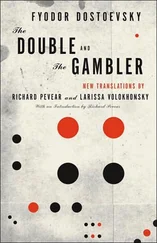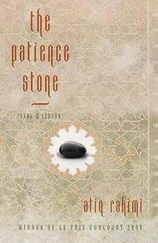The men push Rassoul forward; Sophia and Farzan follow behind. Suddenly they all stop, at the sight of the noose-less gallows surrounded by a silent crowd.
“Where is the noose?” demands the clerk. “It’s been cut!” exclaims one of the guards.
They rush forward and join the crowd at the foot of the gallows. “Let us through, brothers, we have the convict. Move back, move back!”
People turn toward Rassoul and move back as he approaches. A corpse is revealed, lying on the floor. Everything freezes: time, breath, tears, words. Legs tremble. Rassoul falls to his knees beside Parwaiz’s body, the noose around its neck. The crowd murmurs, fidgets, backs away. Other armed men appear and furiously push people aside to make way for the commandants, who arrive in a great cacophony. With their boots, everything disappears. Rassoul can no longer see. There is only the voice, nothing but the voice, Sophia’s voice.
“YOU’RE BEAUTIFUL,” Rassoul whispers in Sophia’s ear. She blushes. He throws himself at her feet to tell her at last: “I prostrate myself before not only your innocent beauty, but also your suffering.” She is moved. She contains herself. Only her hand responds, slipping into Rassoul’s hair to lose itself there. “It’s been a long time since you’ve spoken to me so tenderly.”
“I’ve had a great deal to say to you, but the war hasn’t given us time.”
He kisses her, shyly, on the cheeks. She hides her face, reaching out to take Rassoul’s hand. “Will you come away with me?” he asks her.
“Where?”
“Far away.”
“To Mazar-e Sharif?”
“No, further… to the Valley of Infans Regained !”
“Where is that?”
“It’s a long way away. Not to the east or the west, not to the north or the south.”
“It doesn’t exist, then.”
“I will build it for you.”
“How will it be?”
“A beautiful valley, where no one speaks. Where no one has ever experienced evil.”
“So we are the infans ?”
“Still and always!” And they laugh.
“I have to go now,” she says, standing up.
“Are you going back to Nazigol’s place?”
“No. She left with Amer Salam.”
“Where did they go?”
“I don’t know.” She moves closer: “I hope they don’t come to the Valley of Infans Regained!”
“No. It is only for us.”
“See you soon, then!” She puts on her sky-blue chador and leaves the cell.
Rassoul remains standing, lost in thought. “You have another visit,” the guard tells him. And the old clerk comes in, carrying a thick file. “How is our young man?” Rassoul nods his head, feeling calm.
The clerk is about to sit down, but Rassoul won’t let him. “Don’t sit there, please. There is a fly, a poor fly…” The clerk is intrigued. He puts on his glasses and peers at the floor. Then he moves to one side, and sits down very carefully. “This fly… it is imprisoned with me,” says Rassoul as he points to the creature, which has settled languidly next to the clerk.
“So now you’re even worried about the life of a fly?”
“Last night, I had a strange dream. I dreamt of this fly humming a song that I knew, something like tat, tat, tat… tvam, tvam… asi… —yes, that was it, but I couldn’t make out the meaning.”
“It’s an Indian song.”
“That makes sense. What does it mean?”
“ ‘You too are this’!”
“That’s pretty.”
“Now even the flies are singing for you. Life is beautiful! So are you happy that your trial is turning out as you wished?”
“It’s all the same to me now.”
“All the same to you? You’ve turned the world upside down and it’s all the same to you? Because of you, an important mujahideen leader has hanged himself; the judge has been fired; the newspapers talk of nothing else day and night; your cousin has involved all the foreign journalists and UN officials… and what does Sir say?” The clerk shakes his head in disapproval.
“It wasn’t me who turned everything upside down. It was Dostoevsky!”
“That’s it, you’re off again. Stop going on about your precious Dosto-whatever! You didn’t kill because you’d read his book. You read it because you wanted to kill. That’s all. If he were still alive, he would accuse you of plagiarism!”
Rassoul looks into the clerk’s eyes for a long time. “Don’t look at me like that. I didn’t ask you a riddle,” says the clerk as he spreads out his papers on the floor. “In any case, they gave me my job back, and they want a file on you… By the way, do you know what they found in Commandant Parwaiz’s pocket?”
Rassoul’s eyes are bright with curiosity. “They found a letter, in his handwriting: ‘Mourn me, don’t avenge me!’ What a man, what a brave man! Do you know why he committed suicide? Apparently his troops found the man who had killed his adopted son. But in the confrontation, the murderer’s wife and baby were also killed. Now, moving on… what should I write, please?”
Silence.
“Everything! I’ve told you everything…”
“Everything? I don’t think so. In any case, I’ve already drafted a few lines. I’ll read, and if there’s a problem you can point it out: The moment Rassoul lifts the ax to bring it down on the old woman’s head, the thought of Crime and Punishment flashes into his mind. It strikes him to the very core. His arms shake; his legs tremble. And the ax slips from his hands. It splits open the old woman’s head, and sinks into her skull. She collapses without a sound on the red and black rug. Her apple-blossom-patterned headscarf floats in the air, before landing on her large, flabby body. She convulses. Another breath; perhaps two. Her staring eyes fix on Rassoul standing in the middle of the room, not breathing, whiter than a corpse. His patou falls from his bony shoulders. His terrified gaze is lost in the pool of blood, blood that streams from the old woman’s skull, merges with the red of the rug obscuring its black pattern, then trickles toward the woman’s fleshy hand, which still grips a wad of notes. The money will be bloodstained… So, tell me, why didn’t you take the money?”
My utmost gratitude to all those who have blessed this novel:
Laurent Maréchaux and Denis Podalydès for their valued reading;
Danièle D’Antoni and Leili Anvar for their germane comments;
Rahnaward Zariab, Kambouzia Partovi, Hafiz Assefi, Rahima Katil and Sajad Zafar for their “Persian perspective” and support;
Paul Otchakovsky-Laurens for everything; and Christiane Thiollier and Sabrina Nouri forever.
About the Author and Translator
ATIQ RAHIMI was born in Afghanistan in 1962 and fled to France in 1984, where he has become an award-winning author (2008 Prix Goncourt) and filmmaker (2004 Prix un certain regard, Cannes). The film adaptation of his novel The Patience Stone , which he cowrote and directed, was selected as the Afghan entry for the 2012 Oscar for Best Foreign Language Film. In recent years, he has returned to Afghanistan many times to set up a writers’ house in Kabul and offer support and training to young writers and filmmakers. He lives in Paris.
POLLY MCLEAN is a freelance translator from Oxford, England. Winner of the 2009 Scott Moncrieff Prize, she has translated books by Catherine Deneuve and Sylvia Kristel, as well as the award-winning Secret by Philippe Grimbert.
A Curse on Dostoevsky:
“Atiq Rahimi brilliantly reimagines Crime and Punishment and, in a daring feat of creative panache, transplants Dostoevsky’s classic morality tale to modern-day Afghanistan. This is easily Rahimi’s most imaginative and complex work yet, and should cement his reputation as a writer of great and unique vision.”
Читать дальше












